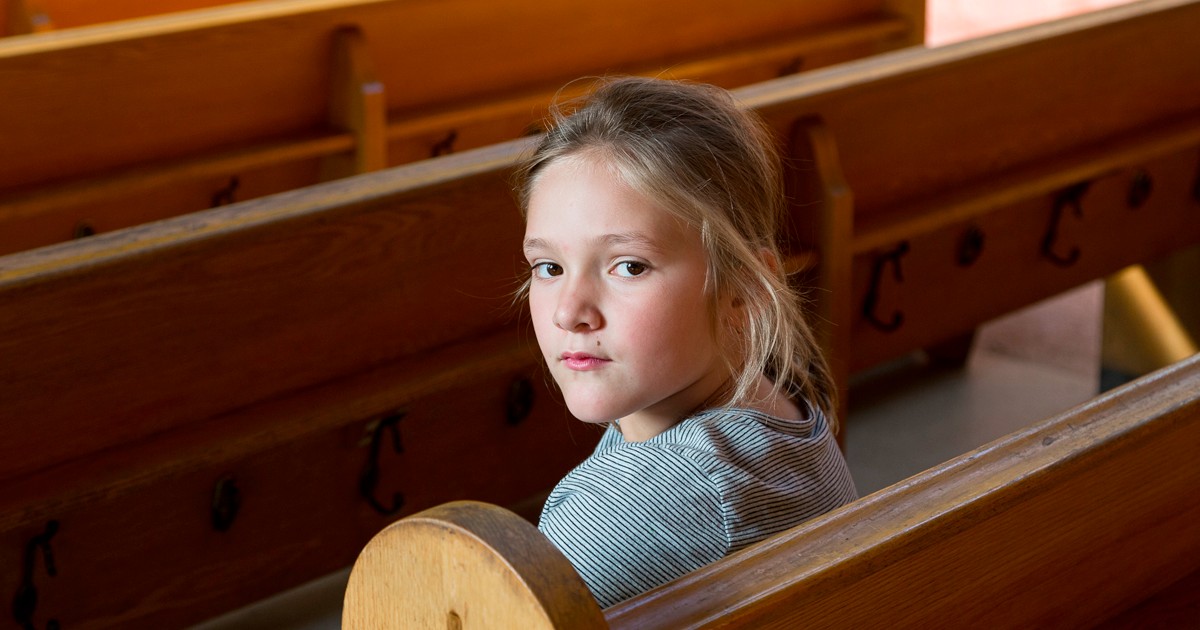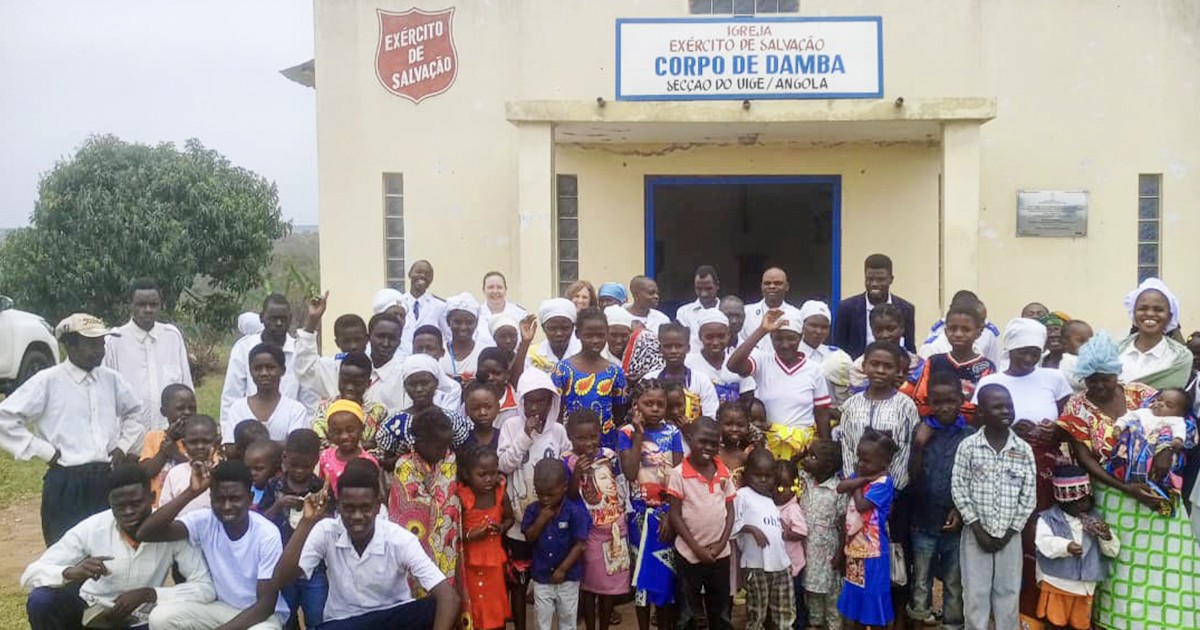You’ve probably heard the old saying: “Preachers’ kids are the worst behaved.” Such things have sometimes been said about the children of officers in The Salvation Army, too—but are these comments fair or accurate? Perhaps it’s time we look beyond the stereotypes and labels and see what’s really happening with OKs (officers’ kids).
Have you noticed how many OKs are missing from the congregation when you enter a typical Salvation Army corps these days? It was this observation that led me to pursue a research project as part of a doctor of ministry degree: “Salvation Army Officers’ Kids: How OK Are They?” I discovered that an astounding 49 percent of OKs in Canada have left The Salvation Army.
While some OKs seem to thrive in their relationship with God as adults and continue to be engaged with their local corps, others have disappeared from our congregations. As an OK, officer parent and pastoral services officer, I find this statistic alarming. It threatens our very existence as a Salvation Army marching into our second century.
Background of the Research Study
It isn’t only OKs who are missing from church congregations, though. A research project commissioned by the Evangelical Fellowship of Canada (EFC) in 2011 found that, among those 18 to 34 years of age who were “raised Christians”—attending a Catholic or mainline Protestant church at least weekly in the ’80s and ’90s—only one in five continued to attend weekly as an adult. For those raised in the evangelical tradition, only half remain regular attenders.
Against this backdrop, I wanted to inquire about the current spiritual status and church affiliation of adult children of Salvation Army officers and explore the sources of encouragement and discouragement that influenced these connections. My research participants were OKs from across Canada, ages 18 to 35, whose parents were officers for all or part of their childhood and adolescence.
The data was collected through an online survey with 102 participants, as well as 10 semistructured interviews that focused on the lived experiences (at home, at the corps and in the community) of OKs during their growing-up years, as it related to their personal faith development.
Findings
Under the theme of encouragement, the number one factor that made an impact on personal faith development for OKs was the positive modelling of faith by parents in everyday life. They were also grateful for the nurturing of spiritual practices, such as prayer and family devotions, at home. Living in an itinerant system, OKs felt supported by parents providing a sense of “home” (a secure base).
This spiritual encouragement at home is reflected in the finding that although only 51 percent of OKs are attending the Army, almost 75 percent of those surveyed still attend church regularly (although almost 20 percent attend a different denomination). OKs also indicated they were encouraged by opportunities for involvement in service and ministry at church when it was not mandated.
Nurturing relationships with mentors and friends in the community of faith was another source of encouragement for OKs. This was especially emphasized in experiences of formation through camping ministry. Most of the OKs surveyed had worked at summer camps for multiple summers and said this experience was very encouraging in their faith development.
The strongest discouragement theme was the significant negative impact of frequent moves resulting from the Army’s itinerant system. While one quarter of respondents reported excitement with moving as young children, this changed as they got older. The majority of emotions associated with moving included anxiety, worry, fear, sadness and grief, as reflected in statements such as these:
I have a lot of unprocessed sadness that followed me into my young adult years.
We just kind of left … disappeared and that part of our life was behind us.
Because we moved so much, I may not have the same grounding that some people have … it feels like I have half-baked relationships all over, so I wonder how that might have affected me.
I ascribe my issues with anxious attachment style/avoidant attachment style to my experiences of a fractured sense of community, having moved so much in my developmental years.
In addition to the discouragement of a transient life, OKs experienced other common pressures that the children of clergy face. For example, for some families with both parents in ministry roles, it was a struggle to maintain a healthy work-life balance, which, at times, left OKs feeling secondary to “the Army.” OKs also reported that high moral and behavioural expectations were placed on them just because they were OKs.
Finally, OKs moving into the emerging adult stage were sometimes discouraged when their values were in conflict with those of their parents and The Salvation Army as a whole around particular Army positions, policies and procedures.
Recommendations
Given the strong positive role of officer parents in nurturing faith in their children, I recommend that The Salvation Army be increasingly intentional in supporting this dual pastoral role at home and the ministry unit. In this day and age, Christian parenting is challenging, and coupled with the ever-increasing demands of ministry, officer parents need to be supported with the best of resources to assist them in navigating these dual roles. These resources could be made available through pastoral services officers.
In addition to providing resources, this support could be demonstrated through divisional or regional family camps, picnics, etc., to intentionally bring OKs and officer parents together. I also recommend the promotion of OK camps or retreats, both regionally and territorially. No one understands the lived experience of OKs better than other OKs.
To place the necessary focus on the importance of caring for OKs, I recommend that a territorial champion be appointed who will be the voice of OKs to The Salvation Army. One of their tasks could be to establish an “OKs mentoring OKs” program, such as the Big Brothers/ Big Sisters programs, where OK alumni could encourage and support younger OKs as they navigate transitions.
Since it is unlikely that The Salvation Army will change its itinerant appointment system, it is my recommendation that a transitional care plan be established for OKs, to support them before, during and after each move. This could be a joint project of the pastoral services department, divisional youth leadership and local corps. This transitional care plan should also include transitions to post-secondary education.
A Vital Mission
It is my conviction that the faithful tending and raising of our vulnerable children in the Christian faith is a vital mission for any Christian parent and, even more particularly, it is a crucial task for those called to leadership. As a missional organization seeking to concretely bear witness to Christ’s love for all, The Salvation Army must attend faithfully to the wellbeing and spiritual vitality of our own children and support the growth of healthy officer families, and thus provide integral leadership for the development and maintenance of spiritually flourishing congregations, which in turn minister to communities across Canada and throughout the world.
Major (Dr.) Marlene George is a pastoral services officer in the Atlantic Division.
Photo: Anne Richard/stock.Adobe.com










Thank you all for your comments on the article. Of course there is so much more that could have been said. The complete dissertation should be available through Providence Theological Seminary, Utterbourne, Manitoba or you can email me at marlene.george@salvationarmy.ca for an electronic copy. Keep the conversation going and show kindness to OKs you may know. Blessings to all.